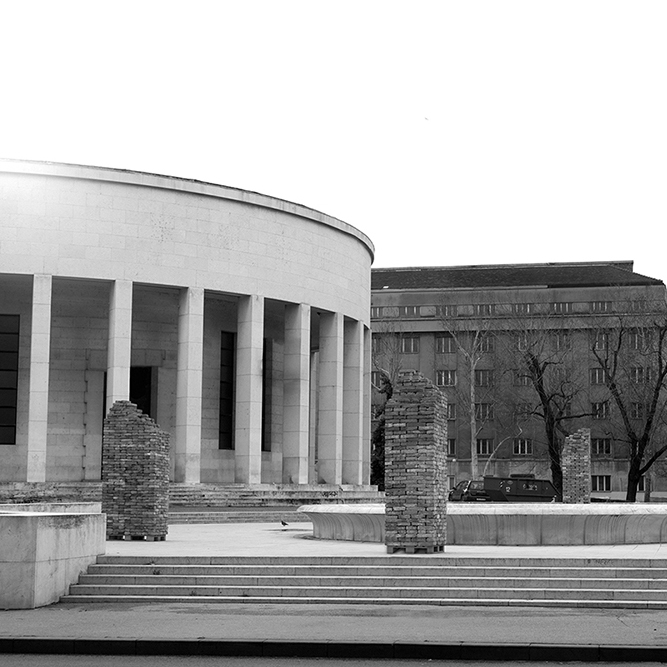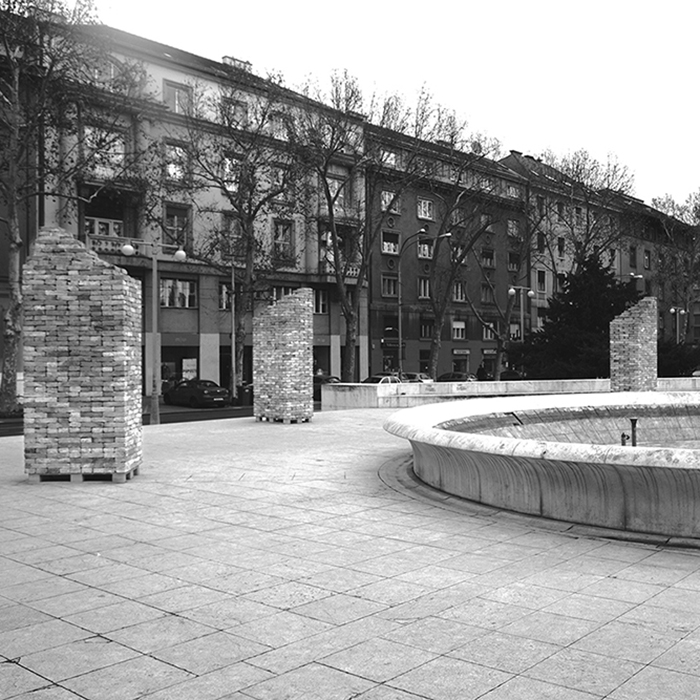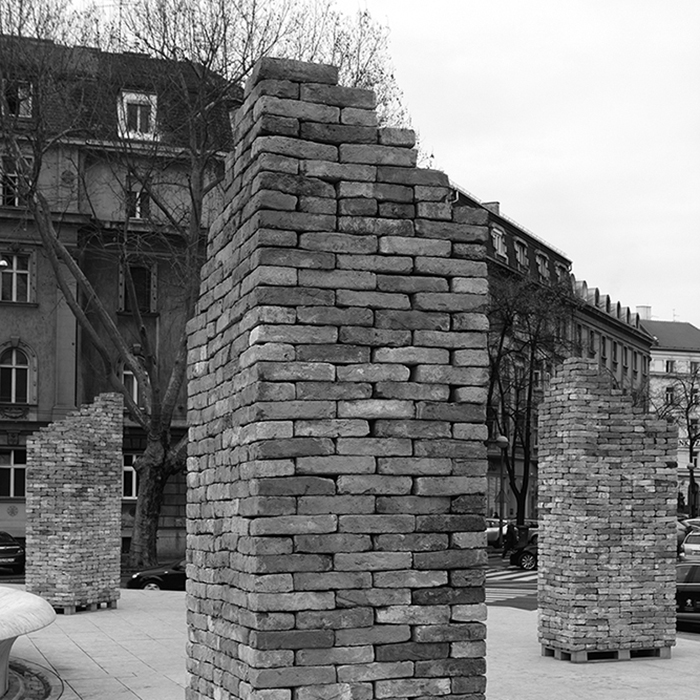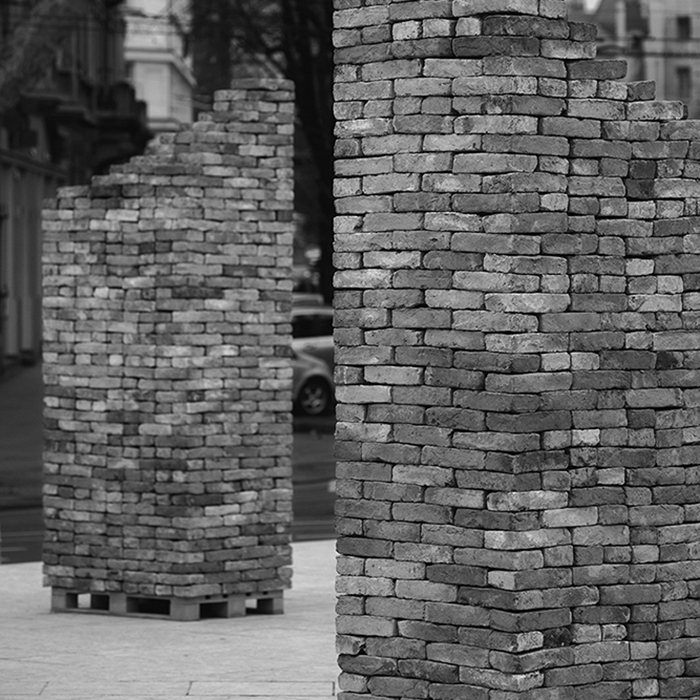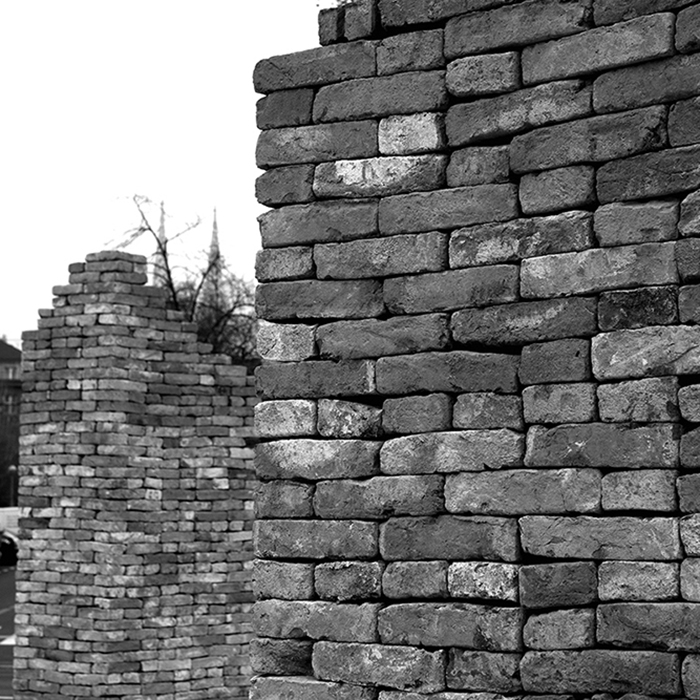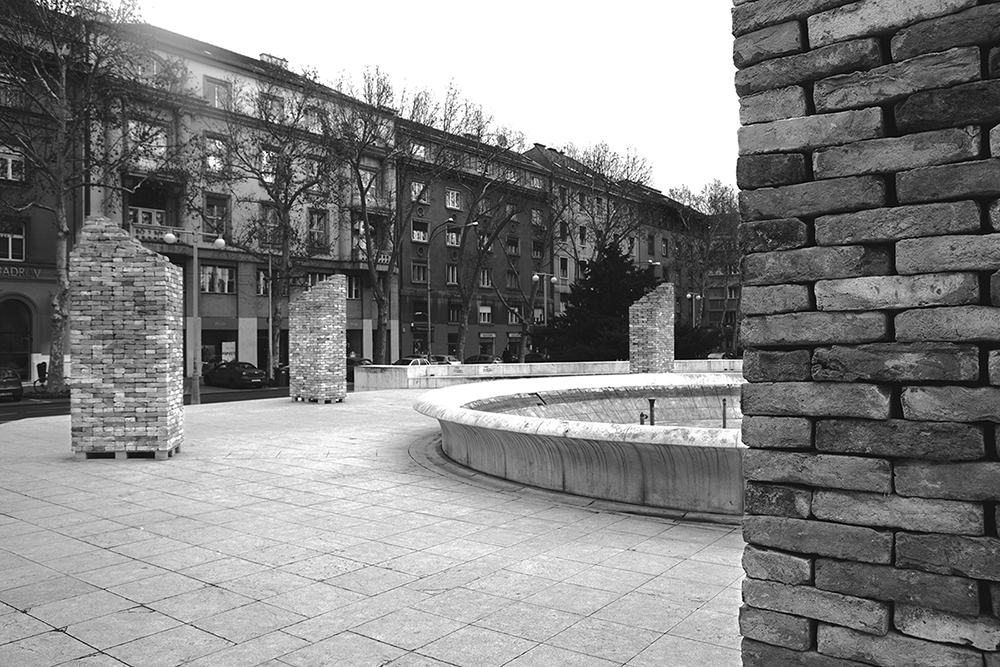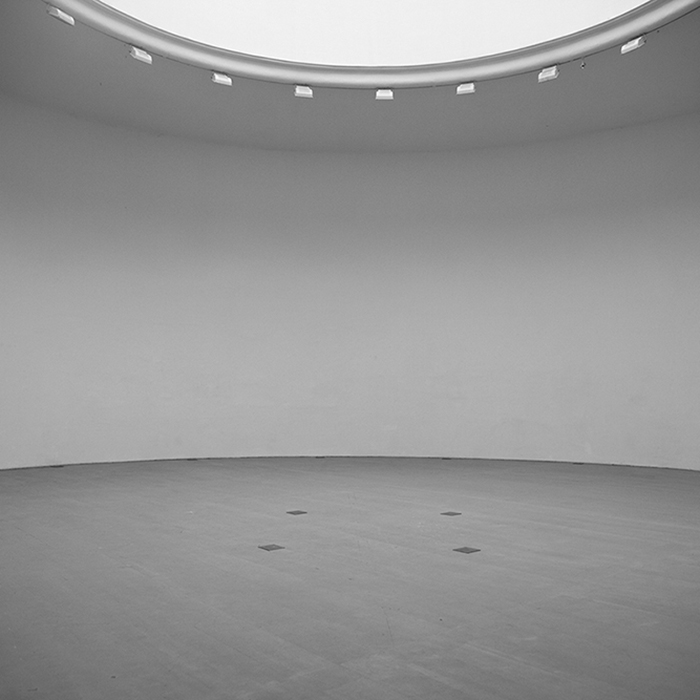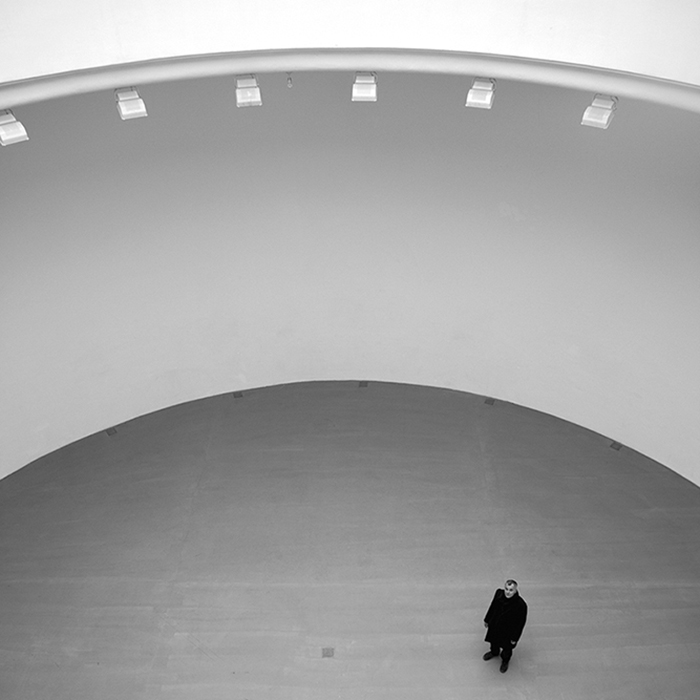K19, bricks from the Jasenovac concentration camp, EU pallets in aluminum fusion 120 x 80 x 20 cm
In an essay written for new work of Zlatko Kopljar, K19, Žarko Paić, in the context of Adorno, Badiou and Lyotard, ask a question: Can contemporary art provide a possibility for man’s redemptive reversal? How and when does it become legitimate to open the possibilities of facing the question of boundaries between the sublime and the evil if just turning
history into a museum issue at the time of techno-science visualizes everything that took place as artifact and information in databases? The seal on the procedures of truth is put by a third party. The utterance does not include a naïve illusion about yielding the history to neutral historiographical science.
It would make even less sense to expect that the event would be interpreted in the awareness of the contemporaries as self-evident and hence non-problematic, without opposite interpretations. Thus the seal is not put just by the time. The struggle for the truth of the time imprints it into the soft tissue of history. Direct and indirect heirs both of the executioners and their victims face it. In this schism between worlds the contemporary event art sets its works into public space to make a discourse on an emerging community at all possible. The art of setting artifacts into public space is by no means just an installation of traces and archiving memory against oblivion. This is about something much more authentic. Truth, bringing guilt to awareness, and forgiveness create some room for the freedom of the new beginning. How do we face the boundary of sublimity and evil today, without making this challenge just a cheap political and ideological means for other purposes or a mere aesthetic effect of de-realization of irreducible ‘nature’ of that about which we might not be able to say anything more? A credible answer to this question is offered by contemporary artist Zlatko Kopljar in his project-installation K19. This is also probably one of his most radical performances. The question of guilt is not anymore directed at someone outside of the territory of the long-gone power of the nation-state. It is decisively posed to the contemporaries. (from essay: Žarko Paić)
Artist Zlatko Kopljar was invited to present his vertical-rectangular brick structures in the circular space of The Barrel Gallery in Zagreb. The structures are made with a particular kind of bricks, manufactured during World War Two in Jasenovac camp, outside Zagreb, by prisoners. After the war the people from the surrounding villages were taking those bricks and used them as building blocks for their houses. Eventually, Kopljar decided to keep the space empty and constructed the structures, brick by brick, in front of the building, around the fountain. The following text is written in the form of a personal letter, which I delivered to Kopljar on the evening of the opening. (from essay: Ory Dessay)
